第88章
"It has been delicately wrought," said the artist, calmly. "As Itold you, it has imbibed a spiritual essence- call it magnetism, orwhat you will. In an atmosphere of doubt and mockery, its exquisitesusceptibility suffers torture, as does the soul of him whoinstilled his own life into it. It has already lost its beauty; in afew moments more, its mechanism would be irreparably injured.""Take away your hand, father!" entreated Annie, turning pale. "Hereis my child; let it rest on his innocent hand. There, perhaps, itslife will revive, and its colors grow brighter than ever."Her father, with an acrid smile, withdrew his finger. The butterflythen appeared to recover the power of voluntary motion; while its huesassumed much of their original lustre, and the gleam of starlight,which was its most ethereal attribute, again formed a halo round aboutit. At first, when transferred from Robert Danforth's hand to thesmall finger of the child, this radiance grew so powerful that itpositively threw the little fellow's shadow back against the wall. He,meanwhile, extended his plump hand as he had seen his father andmother do, and watched the waving of the insect's wings with infantinedelight. Nevertheless, there was a certain odd expression of sagacity,that made Owen Warland feel as if here were old Peter Hovenden,partially, and but partially, redeemed from his hard scepticism intochildish faith.
"How wise the little monkey looks!" whispered Robert Danforth tohis wife.
"I never saw such a look on a child's face," answered Annie,admiring her own infant, and with good reason, far more than theartistic butterfly. "The darling knows more of the mystery than wedo."As if the butterfly, like the artist, were conscious of somethingnot entirely congenial in the child's nature, it alternatelysparkled and grew dim. At length, it arose from the small hand ofthe infant with an airy motion, that seemed to bear it upwardwithout an effort; as if the ethereal instincts, with which itsmaster's spirit had endowed it, impelled this fair visioninvoluntarily to a higher sphere. Had there been no obstruction, itmight have soared into the sky, and grown immortal. But its lustregleamed upon the ceiling; the exquisite texture of its wings brushedagainst that earthly medium; and a sparkle or two, as if stardust,floated downward and lay glimmering on the carpet. Then thebutterfly came fluttering down, and, instead of returning to theinfant, was apparently attracted towards the artist's hand.
"Not so, not so!" murmured Owen Warland, as if his handiworkcould have understood him. "Thou hast gone forth out of thy master'sheart. There is no return for thee!"With a wavering movement, and emitting a tremulous radiance, thebutterfly struggled, as it were, towards the infant, and was aboutto alight upon his finger. But, while it still hovered in the air, thelittle Child of Strength, with his grandsire's sharp and shrewdexpression in his face, made a snatch at the marvellous insect, andcompressed it in his hand. Annie screamed! Old Peter Hovenden burstinto a cold and scornful laugh. The blacksmith, by main force,unclosed the infant's hand, and found within the palm a small heapof glittering fragments, whence the Mystery of Beauty had fled forever. And as for Owen Warland, he looked placidly at what seemed theruin of his life's labor, and which yet was no ruin. He had caught afar other butterfly than this. When the artist rose high enough toachieve the Beautiful, the symbol by which he made it perceptible tomortal senses became of little value in his eyes, while his spiritpossessed itself in the enjoyment of the reality.
THE END
.
1843
TWICE-TOLD TALES
THE BIRTHMARK
by Nathaniel Hawthorne
IN THE LATTER PART of the last century, there lived a man ofscience- an eminent proficient in every branch of naturalphilosophy- who, not long before our story opens, had madeexperience of a spiritual affinity, more attractive than anychemical one. He had left his laboratory to the care of anassistant, cleared his fine countenance from the furnace-smoke, washedthe stain of acids from his fingers, and persuaded a beautiful womanto become his wife. In those days, when the comparatively recentdiscovery of electricity, and other kindred mysteries of nature,seemed to open paths into the region of miracle, it was not unusualfor the love of science to rival the love of woman, in its depth andabsorbing energy. The higher intellect, the imagination, the spirit,and even the heart, might all find their congenial aliment in pursuitswhich, as some of their ardent votaries believed, would ascend fromone step of powerful intelligence to another, until the philosophershould lay his hand on the secret of creative force, and perhapsmake new worlds for himself. We know not whether Aylmer possessed thisdegree of faith in man's ultimate control over nature. He haddevoted himself, however, too unreservedly to scientific studies, everto be weaned from them by any second passion. His love for his youngwife might prove the stronger of the two; but it could only be byintertwining itself with his love of science, and uniting the strengthof the latter to its own.
Such an union accordingly took place, and was attended with trulyremarkable consequences, and a deeply impressive moral. One day,very soon after their marriage, Aylmer sat gazing at his wife, witha trouble in his countenance that grew stronger, until he spoke.
"Georgiana," said he, "has it never occurred to you that the markupon your cheek might be removed?""No, indeed, said she, smiling; but perceiving the seriousness ofhis manner, she blushed deeply. "To tell you the truth, it has been sooften called a charm, that I was simple enough to imagine it mightbe so.""Ah, upon another face, perhaps it might," replied her husband.